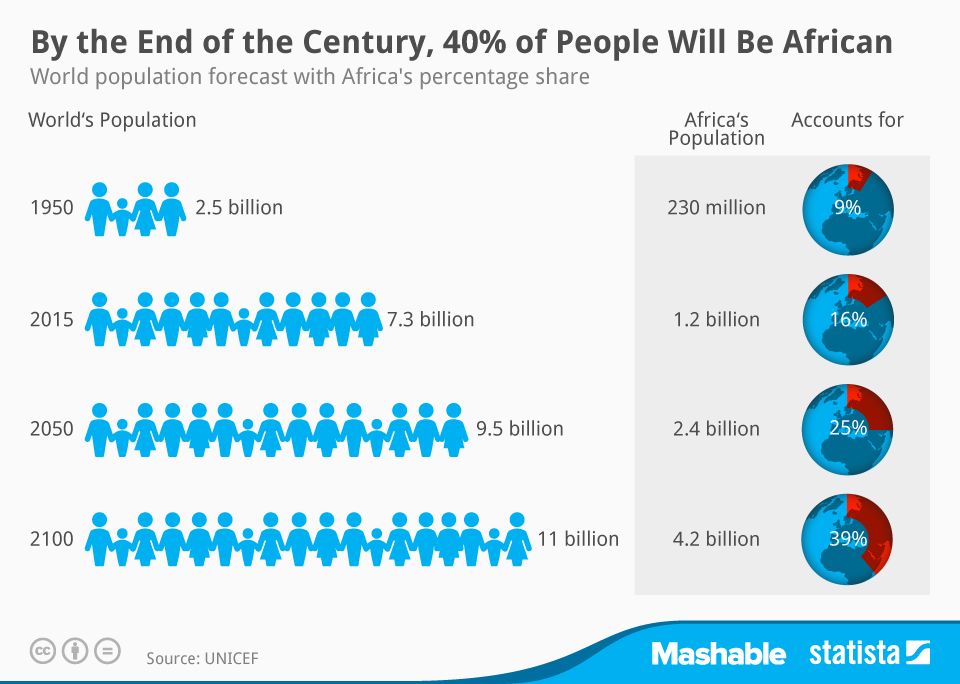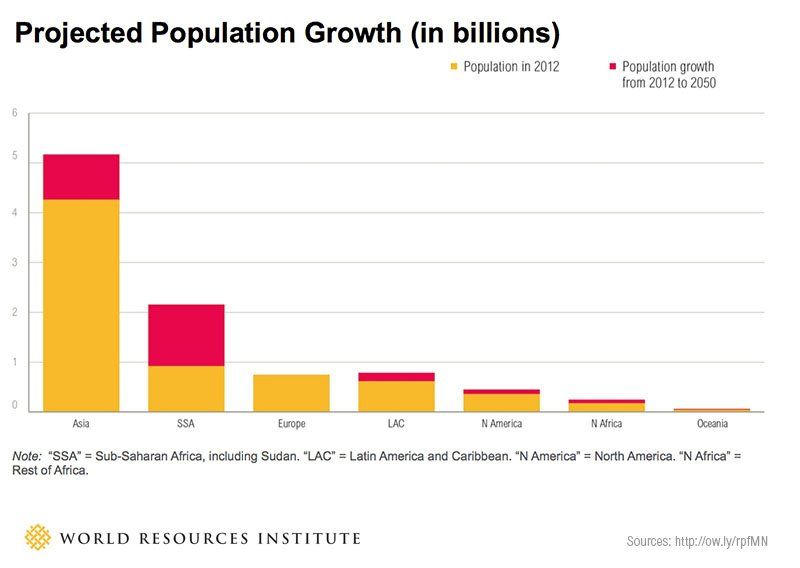

 The Accurate Reloading Forums
The Accurate Reloading Forums  THE ACCURATE RELOADING.COM FORUMS
THE ACCURATE RELOADING.COM FORUMS  Hunting
Hunting  African Big Game Hunting
African Big Game Hunting  African animals need to be owned to survive
African animals need to be owned to surviveGo  | New  | Find  | Notify  | Tools  | Reply  |  |
| one of us |
http://www.learnliberty.org/bl...be-owned-to-survive/ African animals need to be owned to survive KAROL BOUDREAUX JUNE 1, 2017 ENVIRONMENTALISM For years now Africa’s wildlife has been under attack by poachers hunting for elephant ivory, rhino horn, live exotic creatures, and bush meat. But in one country, people have found a market-based solution that seems to work. Poachers and Park Rangers Most wildlife in Africa is the property of the state, which means that responsibility for protecting these increasingly scarce species has largely been left to state agencies that lack the resources and staff they need to monitor and protect animals. In some cases poachers collude with low-paid park rangers or with higher-level government officials to track down and kill animals. As wild animal numbers fall (a result of poaching and/or because more creatures are confined to protected areas or parks), supply is reduced and the value of live animals and animal parts rises. As with other illegal goods (think illicit drugs), the prospect of rising profits drives some poachers to use more extreme measures to get the goods. On the ground, this means that poaching is increasingly militarized. Poachers use assault rifles, night vision goggles, and helicopters to hunt down elephants for their tusks or rhinos for their horn. Too often, people get in the way trying to stop the carnage, and game guards, rangers, and conservationists are injured or killed in the process. There are other problems: Ivory trafficking is also linked to terrorism in Africa, with profits allegedly funding the Lord’s Resistance Army and the Sudanese government. Of course, there are a variety of ways to address the problems of wildlife poaching: drive down demand by educating consumers about what it means to buy a zebra-skin purse, or an aphrodisiac made from an animal part; impose stiff sanctions for poaching, hoping to create negative incentives for poachers; train more guards; beef up protection efforts; or put more animals behind walls and fences. Some of this might work, but some might just ratchet up the violence. Private Ownership and Local Control In southwest Africa, the Government of Namibia has adopted a different, more market-based approach to wildlife management. Until the mid-1990s, most wildlife in the country was managed by the government. Civil war and drought, combined with poaching and killing animals that threatened local people’s crops or livestock, meant that wildlife numbers crashed — with one important exception. On some freehold farms, white Namibians had been able to protect and conserve their animals because, in the mid-1970s, they had been given the legal right to manage and benefit from wildlife. These ranchers had strong economic incentives to protect the animals, because wildlife tourism and trophy hunting generated more income than cattle ranching did. So they benefitted themselves and helped increase animal populations. After independence in 1990, the government expanded this approach and devolved the rights to manage and benefit from the use of wildlife to local black communities so long as those communities self-organized into conservancies. Community conservancies identify the borders of their community, develop constitutions for local self-governance, create and implement financial and game management plans, and specify how they will use any revenue they earn through their wildlife management efforts. For women, conservancies have created new leadership opportunities: 14% of conservancies are headed by women, and 30% of conservancy jobs are held by women — significant numbers in this traditional society. Success and Danger Putting local people in charge of wildlife management, and giving them a real stake in the protection of these animals has shifted their incentives: they are much less likely to poach animals and much more likely to protect them. The results have been a steady increase in income for rural communities and, at the same time, a rise in the numbers of wildlife. Since 1996, when this policy and legal change was implemented, the number of conservancies in Namibia has grown from 0 to 82. Nearly 10% of Namibia’s small population of 2 million are now conservancy members, governing themselves and their natural resources. The conservancies generate income in rural areas where farming is difficult, markets are far away, and other entrepreneurial opportunities are limited. In 1997 conservancies brought nothing in terms of cash and in-kind income to local people. In 2015, conservancies generated just over $100 million Namibian dollars-worth of cash and in-kind income (approximately $7,500,000 US). Conservancies make money by protecting and using the animals (or the artifacts) in their communities. In 42 wildlife conservancies, communities have entered into joint ventures with tourism companies — these partnerships typically lead to the development of lodges where visitors spend money to see, photograph, and in some cases, hunt the wildlife. While trophy hunting remains an important source of income for some conservancies, many do not allow hunting. Tourism lodges are staffed by local people who build skills and earn income to support their families. Meanwhile, outcomes are also good for most wildlife.[i] There has been steady and in some cases substantial growth in the numbers of elephants, impalas, zebras, cheetahs, and lions across the country. By shifting incentives to empower local people with more robust property rights over wildlife, the government has supported three important goals: greater local self-governance, increased economic opportunities for rural Namibians, and improved conservation outcomes for Namibia’s wildlife. The process isn’t without its costs: it’s difficult, even lethal, for people to live in close proximity to wildlife. Livestock are killed by jackals or leopards. Precious gardens are destroyed by elephants, and people are injured or killed by lions, hippos, or crocodiles. To deal with this, Namibians have developed a human-wildlife conflict policy that compensates people for the documented losses they face. The goal is to make it worthwhile to continue living with and protecting animals. I’d love to say that Namibia has unlocked the key to wildlife conservation; in many ways it has. But unfortunately, over the past two to three years poaching has returned. This is probably not surprising: with one of Africa’s largest stock of elephants and with large numbers of other desirable animals, Namibia’s very success [i] Wildlife numbers fluctuate for many reasons, for example, in drought years numbers are likely to be lower than in years with good rains. As more lands are used for commercial agriculture wildlife also lose habitat. Namibia has also experienced fluctuating wildlife numbers due in part to a sustained drought. Kathi kathi@wildtravel.net 708-425-3552 "The world is a book, and those who do not travel read only one page." | ||
|
| One of Us |
Great article . . . a system of local ownership and control of and benefit from wildlife is the only sustainable long term solution to the continued loss of habitat, poaching, etc. Mike | |||
|
| One of Us |
Being saying this for years. If Africa swapped their cattle and goats for Buffalo and Impala they would be rich. ROYAL KAFUE LTD Email - kafueroyal@gmail.com Tel/Whatsapp (00260) 975315144 Instagram - kafueroyal | |||
|
| One of Us |
| |||
|
| One of Us |
| |||
|
| Administrator |
Agree. But, apparently it is OK to breed and kill cattle and sheep. But not buffalo and impala! | |||
|
| One of Us |
The biggest challenge facing Africa's wildlife in one picture:  Mike | |||
|
| One of Us |
Population is the problem everywhere. Conservation through hunting, will not save wildlife if humans keep expanding. The question is, whether there will be much wildlife left when the human populations eventually crash. | |||
|
| One of Us |
The Book, Man-Eaters of Eden. Life and Death in Kruger National Park, is a good book that relates to this topic. It's 50% about conservation of the big cats. Written by an an American who does not use the usual consumer lense to Africa. It refers to the thousands of refugees from Mozambique that the lions of KNP have eaten. IHMSA BC Provincial Champion and Perfect 40 Score, Unlimited Category, AAA Class. | |||
|
| One of Us |
. . . but population growth (and most importantly the resulting loss of habitat) is particularly an issue in Africa. Unless the local people in areas that either contain wildlife or are adjacent to wildlife areas can benefit in a meaningful way economically from the wildlife . . . the wildlife will be eliminated.  Mike | |||
|
| One of Us |
Three other books to read . . . Elephant Conservation by Ron Thomson, What I Tell You Three Times is True by Ian Parker and Game Changer by Glen Martin. Mike | |||
|
| One of Us |
+1 ~~~~~~~~~~~~~~~~~~~~~~~~~~~~~~~~~~~~~~~~ J. Lane Easter, DVM A born Texan has instilled in his system a mind-set of no retreat or no surrender. I wish everyone the world over had the dominating spirit that motivates Texans.– Billy Clayton, Speaker of the Texas House No state commands such fierce pride and loyalty. Lesser mortals are pitied for their misfortune in not being born in Texas.— Queen Elizabeth II on her visit to Texas in May, 1991. | |||
|
| One of Us |
Thanks Mike, Sounds like good books. I will check them out. Brian IHMSA BC Provincial Champion and Perfect 40 Score, Unlimited Category, AAA Class. | |||
|
| one of us |
Isn't the article basically describing what the CAMPFIRE program should have been? Mark MARK H. YOUNG MARK'S EXCLUSIVE ADVENTURES 7094 Oakleigh Dr. Las Vegas, NV 89110 Office 702-848-1693 Cell, Whats App, Signal 307-250-1156 PREFERRED E-mail markttc@msn.com Website: myexclusiveadventures.com Skype: markhyhunter Check us out on https://www.facebook.com/pages...ures/627027353990716 | |||
|
| One of Us |
In theory they were designed to work, in practicality though, most of these projects (Campfire and Wildlife Manage Areas), could be questionable unless someone can prove otherwise. I say this because up until there is 100% commitment, transparency and honesty by the "guardians/keepers" of these projects, they will not succeed and your closing words "should have been" suggest the same. | |||
|
| One of Us |
Spot on and one of the most sensible posts on AR in the last while Habitat loss and destruction are the greatest threat to African Wildlife. Once the habitat is gone and buried under conventional agriculture and cement your wildlife is gone! Forever.... Sustainable, well managed hunting is good for communities and wildlife. It's a great pity the world at large will not accept the facts. | |||
|
| one of us |
I wonder if all these stats take aids into consideration, One of my doctor clients told me that Aids in African was up to around 80% as opposed to what is claimed?? Ray Atkinson Atkinson Hunting Adventures 10 Ward Lane, Filer, Idaho, 83328 208-731-4120 rayatkinsonhunting@gmail.com | |||
|
| One of Us |
Somehow, I don't see over 4 billion african's feeding themselves. That big of a world population(11 billion) is primed for a massive pandemic. | |||
|
| Powered by Social Strata |
| Please Wait. Your request is being processed... |
|
 The Accurate Reloading Forums
The Accurate Reloading Forums  THE ACCURATE RELOADING.COM FORUMS
THE ACCURATE RELOADING.COM FORUMS  Hunting
Hunting  African Big Game Hunting
African Big Game Hunting  African animals need to be owned to survive
African animals need to be owned to survive

Visit our on-line store for AR Memorabilia

